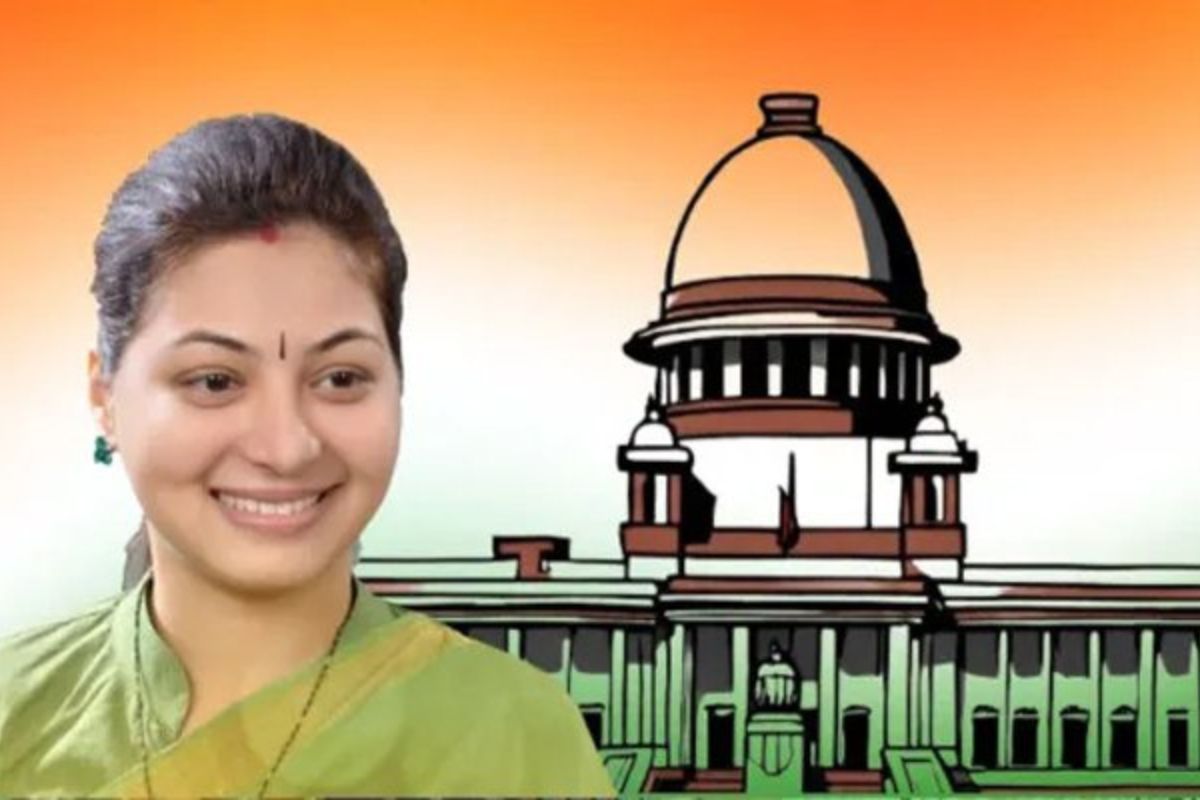Pegasus snooping row: SC adjourns hearing for April 22
The Supreme Court on Friday posted for April 22, 2025 the hearing on a batch of petitions seeking inquiry into the allegations that the government is using Israeli software Pegasus for snooping.
The bench had said, “Stay will not be there. We can’t stay a statute like this. Notice we will issue.”

Jaya Thakur
A Congress leader from Madhya Pradesh on Monday – March 11 – moved the Supreme Court seeking to restrain the Central government from appointing Chief Election Commissioner and other Election Commissioners under Section 7 and 8 of the Chief Election Commissioner and other Election Commissioners (Appointment Conditions of Service and terms of office) Act 2023, to fill the two vacant slots.
The Section 7 and 8 of the Chief Election Commissioner and other Election Commissioners (Appointment Conditions of Service and terms of office) Act 2023, lay down the procedure for the appointment of the members of the Election Commission. including ECE.
Advertisement
Besides seeking to restrain the Central government from going ahead with the appointment of two Election Commissioners, the petitioner Jaya Thakur in her application has further sought direction that the appointment of the members of the Election Commission be done in pursuance to the March 2, 2023, Supreme Court’s Constitution bench judgment which had directed that the panel for the selection of CEC and ECs should include Prime Minister, Leader of Opposition in Lok Sabha and the Chief Justice of India.
Advertisement
n the wake of the resignation of Election Commissioner Arun Goel last week and retirement of Anup Chandra Pandey, two vacancies of Election Commissioners have arisen. The government has 0n March 15 called a meeting of the panel comprising the Prime Minister, a cabinet minister and the Leader of Opposition for the selection of candidates to fill two vacant slots.
Advocate Varun Thakur, appearing for Jaya Thakur in a mentioning sought an early listing of the plea for hearing before a bench headed by Chief Justice DY Chandrachud, Justice JB Pardiwala and Justice Manoj Misra. The bench asked the lawyer to send an email regarding this and it will look into the listing.
Jaya Thakur had earlier challenged the provisions of the Chief Election Commissioner and other Election Commissioners (Appointment, Conditions of Service and terms of office) Act, 2023. Her petition came up for hearing on January 12, 2024. The top court has issued notice but declined to stay the law.
While issuing notice to the Central government returnable in April 2024, a bench comprising Justice Sanjiv Khanna and Justice Dipankar Datta on January 12, 2024, had refused to stay the operation of the law.
The bench had said, “Stay will not be there. We can’t stay a statute like this. Notice we will issue.”
The Chief Election Commissioner and Other Election Commissioners (Appointment, Conditions of Service and Term of Office) Act 2023, was brought to dilute the March 2, 2023, a five-judge constitution bench’s unanimous judgment directing that the appointment of the Chief Election Commissioner and the Election Commissioners shall be done on the recommendation of a selection panel comprising the Prime Minister of India, the Leader of the Opposition in the Lok Sabha and the Chief Justice of India.
The new law, that was notified on December 28, 2023, the panel for the selection of CEC and the ECs would include the Prime Minister, Leader of Opposition, and a Central Minister to be nominated by the Prime Minister, thereby giving a clear majority to the government in the selection panel.
The Gazette notification followed after the President gave assent to the Chief Election Commissioner and Other Election Commissioners (Appointment, Conditions of Service and Term of Office) Bill 2023.
Besides Jaya Thakur, Sanjay Narayanrao Meshram, Dharmendra Singh Kushwaha, advocate Gopal Singh have approached the top court challenging the new law on the selection of the CEC and the ECs that has dropped the Chief Justice of India from the selection panel.
The petitioners have sought the setting aside of the notification of the law that replaced the Election Commission (Conditions of Service of Election Commissioners and Transaction of Business) Act, 1991.
The Chief Election Commissioner and Other Election Commissioners (Appointment, Conditions of Service and Term of Office) Bill 2023, was passed by Rajya Sabha on December 12 and the Lok Sabha on December 21, 2023, amidst the suspension of a large number of opposition members in the Lok Sabha.
The Opposition members had earlier expressed their serious concern over the provisions of the then bill, saying it is “one of the biggest blows to democracy” by the Modi government in the last nine years.
The court in its March 2, 2023, verdict had said that in case, there is no such Leader of Opposition, the Leader of the largest Party in the Opposition in the Lok Sabha having the largest numerical strength will be on the Committee. The court had said that this norm will continue to hold good till a law is made by the Parliament.
The petitioners challenging the law enacted in 2023 to exclude CJI from the selection panel have contended that the provisions of the new law, are violative of the principle of free and fair elections since it does not provide an “independent mechanism” for appointment of the members of Election Commission of India (ECI).
They have further said that the Act excludes the Chief Justice of India from the process of appointment of the members of ECI and it’s in violation of the March 2023 verdict of the top court which had ordered that the appointment of members of the ECI be done on the advice of a committee comprising the Prime Minister, the CJI and the Leader of Opposition in Lok Sabha till a law is made by the Parliament.
Advertisement